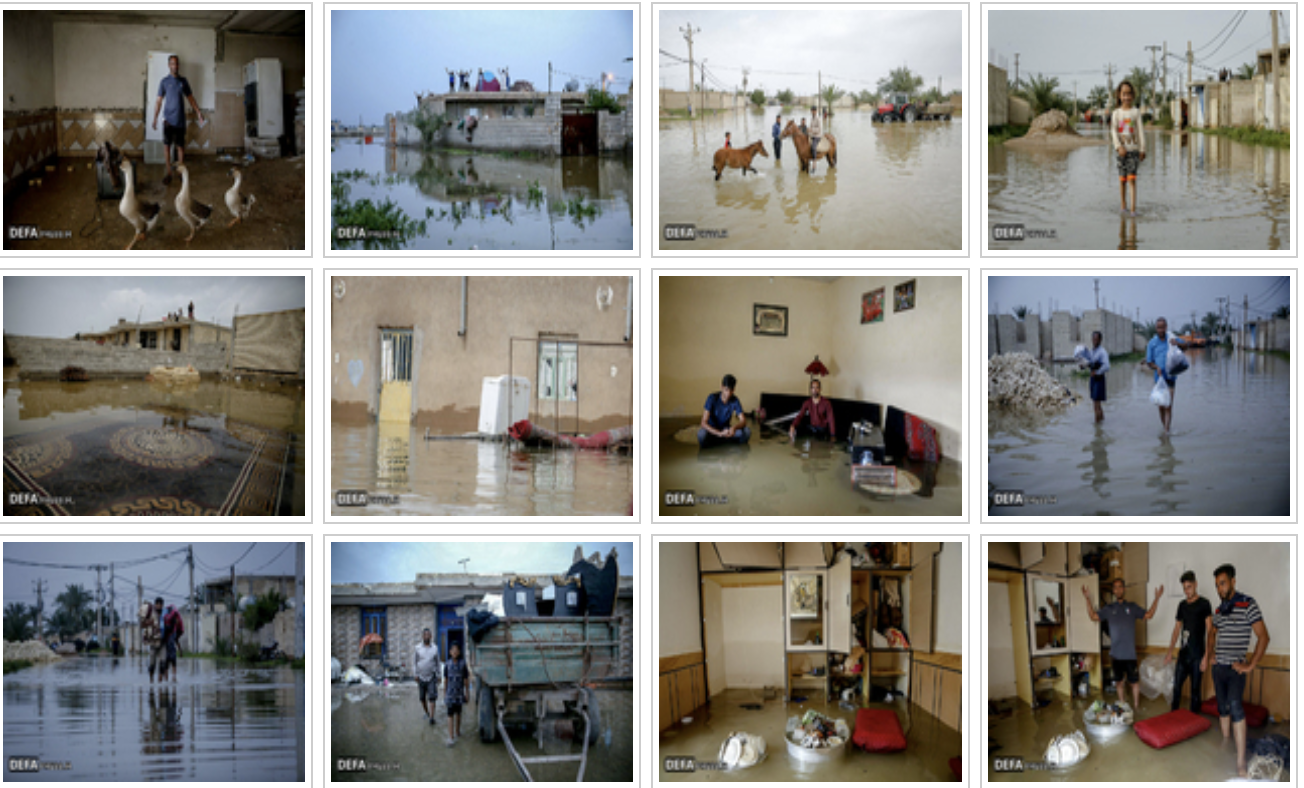Ahwaz Floods; Save half a million displaced in 274 villages evacuated!

Iranian security and intelligence service of the terrorist organization IRGC have arrested aid workers and social activists and bring the foreign militias such as Iraqi Hash Elshaabi and Lebanese Hizbullah instead. IRCC-Quds Force brought those militias after General Qasem Soleimani's visit to Ahwaz on the pretext of helping the flood victims but the local activists told Ahwaz Human Rights Organization (AHRO) that they have orders to participate in the crackdown of the protests of the Ahwazi Arab minority against discrimination and suppression. The detentions are due to the fact that various documents and videos have been published showing that the IRGC and the Ministry of Oil and the Iranian government are not in a position to direct the floods to the Hur region due to possible damage to oil facilities. Basically, for more than a decade Hor Al-Azim marsh has been dried up by IRGC to extract oil through Chinese contractors and has blocked every water access to the marsh, and as a result, has gained millions of dollars from oil. Following the latest rainfall, local indigenous Arab farmers directed the water toward hor Al-Azim marshlands through manually building soil barriers. And as a consequence, water reached the dry parts of Hor- Al-Azim. IRGC yet again destroyed these soil barriers toward villages and the surrounding farmlands where Ahwazi Arab indigenous people live. Despite extracting oil from the middle of the water is possible, however, it is costly, and it is a cost that the IRGC is not willing to pay, instead of sacrificing the environment and livelihood of residence in this oil-rich region. In addition to Hor Al-Azim, other fallacies marshland Hor Doragh in Shadegan is situated in the south of the Ahwaz region is 400,000 hectares and has been in the Montreux list of endangered marshlands. In the approximately of Shadegan marshes, there are various sugars and other agricultural companies owned by IRGC.
Not assigning sufficient water to this marshland similar to Al-Azim has left the local fishermen, and farmers whose only living hood is dependent on the sources of marshlands poor and forced them to emigrate to shanty towns around bigger cities like Ahwaz. The other consequence of dried up marshes is that that following each storm, the soil is easily removed from the now dry marshlands and has caused severe dust storms.
IRGC is sacrificing local Ahwazi Arabs to protect its oil facilities, and for this reason, they have faced the protest of local people. In the first of April, an Ahwazi Arab farmer, "Aboud Jelizi” was shot dead by IRGC fire, after protesting with other farmers against the situation and not allowing their forces to destroy the dam villagers had built to protect their home and lands.
Now the Arab farmers have lost all their farms because of the floods, their houses have been demolished, and everything has been lost. The government has promised to pay some minor compensation but the people do not trust it and say they have not been paid Seoul compensation in 2015. The fate of half a million displaced people living in deserts, mountains and camps remains unknown. The displaced are threatened with shortages of supplies, food, medicine and sanitary equipment.
The Iranian government agencies have not taken any serious action to resolve the flood-displaced people's problems and the security forces are trying to shut down popular centres for pressure on the Arab people.
Ahwaz Human Rights Organization (AHRO) appeals international relief committees such as the Red Cross and the World Health Organization and others to assist the displaced in the villages of the towns of Ahwaz (Khuzestan province). AHRO also while condemning the mass arrests against aid workers and volunteer activists called for their immediate and unconditional release, and calls on international human rights organizations to condemn these repressive measures by the authorities of The Islamic Republic of Iran.
Ahwaz Human Rights Organization
